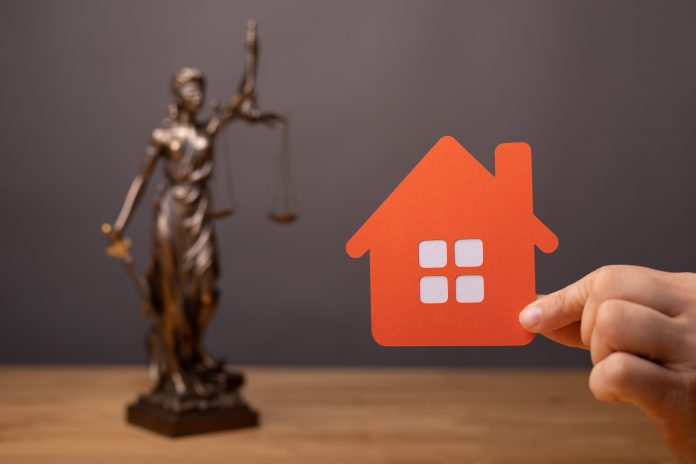
If you have a landlord-tenant dispute — an overdue deposit, a necessary repair, lease violation, or any other number of problems related to your apartment — you may be considering suing your landlord.

Small claims court provides an easy and relatively inexpensive way for renters to resolve disputes. Landlords aren’t able to bring their lawyers to small claims court, which limits their ability to prolong case lengths and costs. However, it’s important to know the fees for suing your landlord before taking action. These costs can have a major impact on the strength of your case.
What Is a small claims court?
Small claims court is a special court where renters can sue their landlord for an amount of rent that’s under a certain threshold. (This threshold varies by state.) More importantly, renters don’t need a lawyer to present their case. This helps keep costs down and makes small claims court an attractive option for many tenants. In many states, the court doesn’t even allow landlords to be represented by a lawyer, which limits their ability to drag out the case or increase costs.
Fees for suing a landlordThe cost of filing a small claims case varies by state and by the amount for which you are suing. Here’s a rough approximation of how much you’ll end up paying when suing your landlord:
1. Filing feeMost courts charge a fee to file your claim (it may be called something like a “first appearance fee” or “petition fee”). This is paid when you submit your claim to the court. It generally works like this:
-
· If you are suing for an amount that’s less than $1,000, your fee may be between $30 and $50.
-
· If you are suing for between $1,000 and $5,000, your fee may be between $50 and $100.
-
· If you are suing for more than $5,000, you may have to pay even more.
After you pay your fee, the court will likely schedule a hearing and officially notify your landlord about the case. In some places, this is called “serving the defendant.”
2. Serving the defendantAfter you pay the filing fee, you’ll have to let your landlord know that you’re suing them. In order for your landlord to attend the hearing, they will have to be served. You may need to prepare and send a formal summons and filing. You can mail the paperwork yourself (but be prepared to describe the situation later in court) or use the sheriff, a certified letter, or a process server. Each of these methods costs money.
If you are suing your landlord, you may choose to serve them through a process server or sheriff. This can be the most expensive method. Or, if your jurisdiction permits, you might be able to serve your landlord through certified mail, which could be cheaper.
3. Extra fees for legal costs
The small claims court system is intended to be an accessible alternative to hiring a lawyer. However, you might incur additional fees. If your case requires an expert witness, like a property inspector or someone else for repairs, it could become expensive. These expenses add up, so you should include them in the full cost of your case.
If your case is more complicated and you want to consider hiring an attorney or a legal consultant, you should factor that in as an extra cost. However, since most small claims courts don’t require you to have a lawyer to represent you, many tenants choose to represent themselves to avoid this expense.
4. Potential collection costs
If you win your case and the court rules in your favor, the court will order the landlord to pay you the amount you requested. However, the landlord may not pay without enforcement. If your landlord doesn’t pay voluntarily, you will need to take additional steps to collect the judgment. This will again cost you money, with garnishment or asset seizure, and you’ll need to go back to court.
Are small claims fees worth it?
In the end, the costs associated with taking a landlord to court in small claims court may initially seem high, as you can easily incur several months of waiting and numerous fees. This means you have to pay for the court to sue, the grievance page delivery fee, and the sheriff’s fee. However, it can be cost-effective for tenants to settle disputes and solve their problems without emptying their bank accounts.
You need to know how much you are willing to spend when going to small claims court. Compare this to the amount you are trying to recover. If it’s a rental payment with advertising costs and interest, in some areas, this might be substantial.
ConclusionTaking your landlord to small claims court is a fast way to resolve disputes, but it comes at a cost. Find out how much it costs. What are the current filing fees? Do I have to pay service fees? Can I afford this amount before moving forward?
